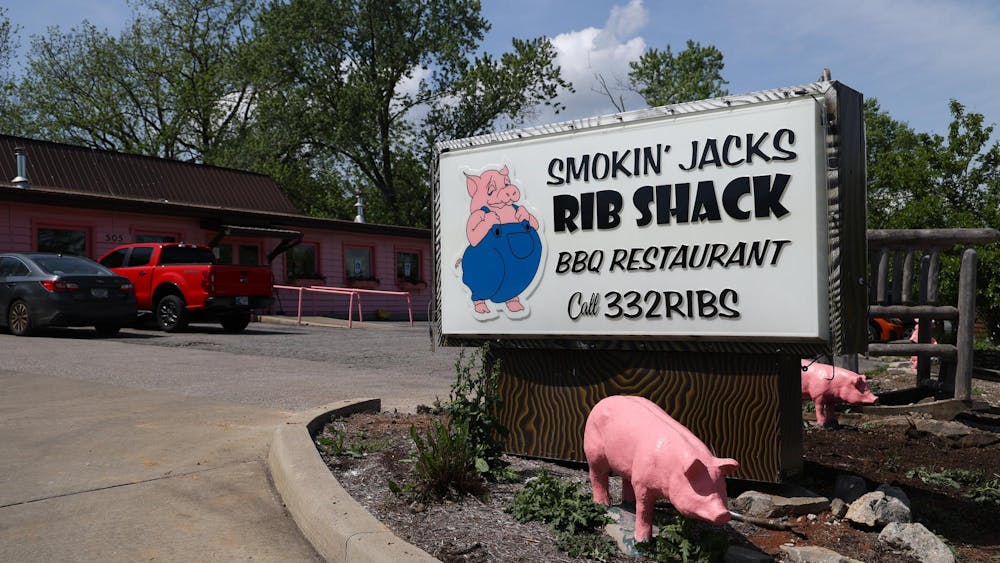“If everyone in Bloomington composted their leaves, we wouldn’t have to have these diesel-powered trucks collecting these leaves,” said Susie Johnson, director of the department.
Though the city burns fuel collecting yard waste throughout the year anyway, Johnson said keeping leaves out for workers to pick up can still have an added effect on greenhouse gases. A diesel powered dump truck and vacuum are used to collect the raked-up leaves. By dealing with the matter themselves, residents can help prevent fossil fuel emissions.
Bloomington residents can rake leaves into biodegradable bags to be picked up, or to the edge of the curb to be vacuumed. A third option, which is encouraged by the city, is to compost the leaves.
“If you compost at home your own leaves and yard trimmings you have rich composting material you can then use in your garden,” Johnson said.
Some communities send their collected yard waste to local landfills, Johnson said, where organic matter produces greenhouse gases when it decomposes.
Bloomington doesn’t.
All of the leaves the city collects go to Good Earth LLC, a commercial composter that turns yard waste into mulch and organic compost available for residents to purchase.
Marcia Veldman, manager of the Bloomington’s Farmers’ Market, said she believes in the benefits of composting. Though she doesn’t add leaves to her pile — instead she rakes them onto her flowerbeds, where they provide warmth and coverage during winter months and add nutrients to the soil — she does add other garden waste like grass trimmings, and kitchen scraps like eggshells and coffee grounds.
Composting also returns carbon back into the soil, Veldman said.
“Sending kitchen scraps to the landfill contributes to climate change, whereas composting them and returning them to the soil is positive,” she said.
Landfills account for about 18 percent of methane emissions in the United States, according to the Environmental Protection Agency. On its website the agency reported that methane is the “second most prevalent greenhouse gas emitted in the United States from human activities.”
By adding organic matter like leaves to a compost pile, the EPA reported that people can reduce their carbon footprints.
Johnson said the Public Works Department wants people to be aware of the benefits of composting.
“I understand why the city promotes people (composting) by themselves,” Veldman said. “It saves that extra fuel from going around, picking them up and driving them to a composting facility when most people could quite easily compost them themselves in their yard.”





